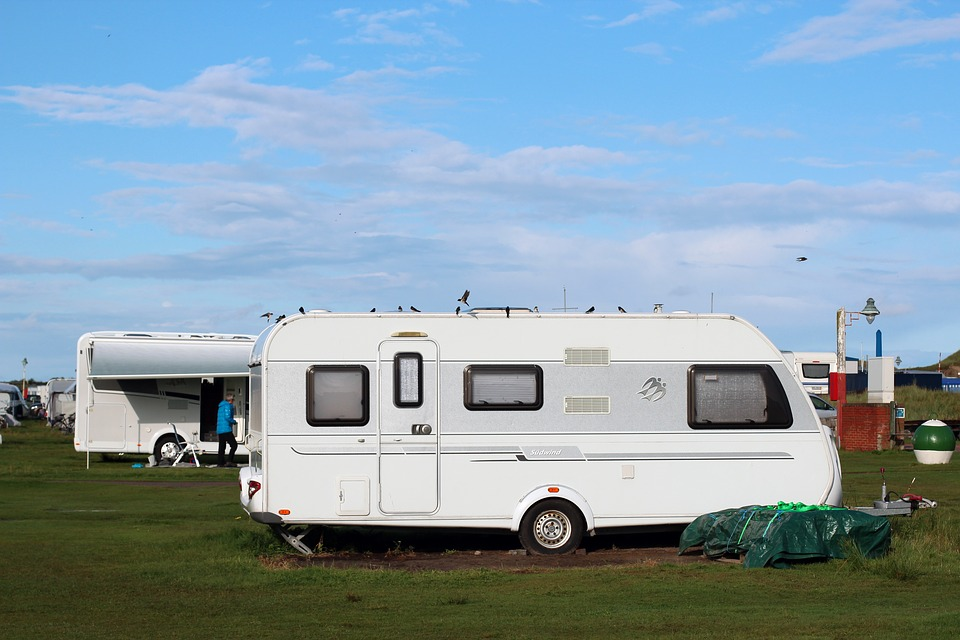St Cyrus Travellers’ site secures decade long permission

Travellers have won their fight to stay on a site built without permission beside the internationally-renowned North Esk Park nature reserve in Aberdeenshire.
North Esk Park at St Cyrus has been at the centre of a planning battle since emerging virtually overnight without approval in September 2013.
The development was twice retrospectively approved by Aberdeenshire councillors before being called in by Holyrood over objections from the Scottish Environmental Protection Agency (SEPA).
Sepa said lives could be put at risk by flooding from the River North Esk, which passes just a few hundred yards away from the site on the border of Aberdeenshire and Angus, The Courier reports.
However, a new appeal ruling has granted North Esk Park families a ten-year temporary approval for the near 20-stance development.
Scottish Ministers said the site’s flood risk and failure to comply with the local plan did not outweigh the impact families would suffer if they were thrown off a site in an area where there is no other Gypsy/Traveller provision.
Those living there have said the decision ends the uncertainty which has hung over families for the past eight years.
However, one local councillor has said the ruling has simply “kicked the can down the road”.
In newly-issued judgements, permissions were granted for the nine-stance touring site and 10-stance permanent site. A physical hearing to consider the appeal arguments was hindered by the pandemic and reporter Michael Shiel considered the online submissions of the parties.
Ministers said his recommendation that the developments should be given a 15-year permission was too long and have put a ten-year condition in place.
The main issues in the appeal were striking the balance between the need for additional Gypsy/Traveller provision in Aberdeenshire against the environmental effects of the development and the flood risk to the site.
The report found: “The reporter considers that Aberdeenshire Council has failed to provide suitable sites in South Aberdeenshire and as a result, the Gypsy/Travelling people community has made its own provision at this location.
“There is a need for provision of facilities such as this in the Kincardine and Mearns area of Aberdeenshire, and that granting planning permission helps meet that need.”
Mr Shiel was of the view that the development would have no adverse effects on natural heritage, including the adjacent SSSI. The previous appeal had brought a warning the development’s location gave rise to “substantial risk to life and property” in the event of a major flood incident.
The latest findings add: “There is no dispute between the parties that the site is predicted to be flooded by water from the North Esk by a 1-in-200-year event.”
In a worst-case scenario that could mean flooding to a depth of just under half a metre. SEPA aims to give a three-hour warning if the site is likely to flood, and the reporter said the water velocity at the site would be reduced from that of the river.
The approvals include a requirement for a flood emergency evacuation plan to be drawn up within three months.
An Aberdeenshire Council spokesperson said: “We note the decision of Scottish Ministers on these called-in planning applications and will consider the findings and any actions going forward.”







